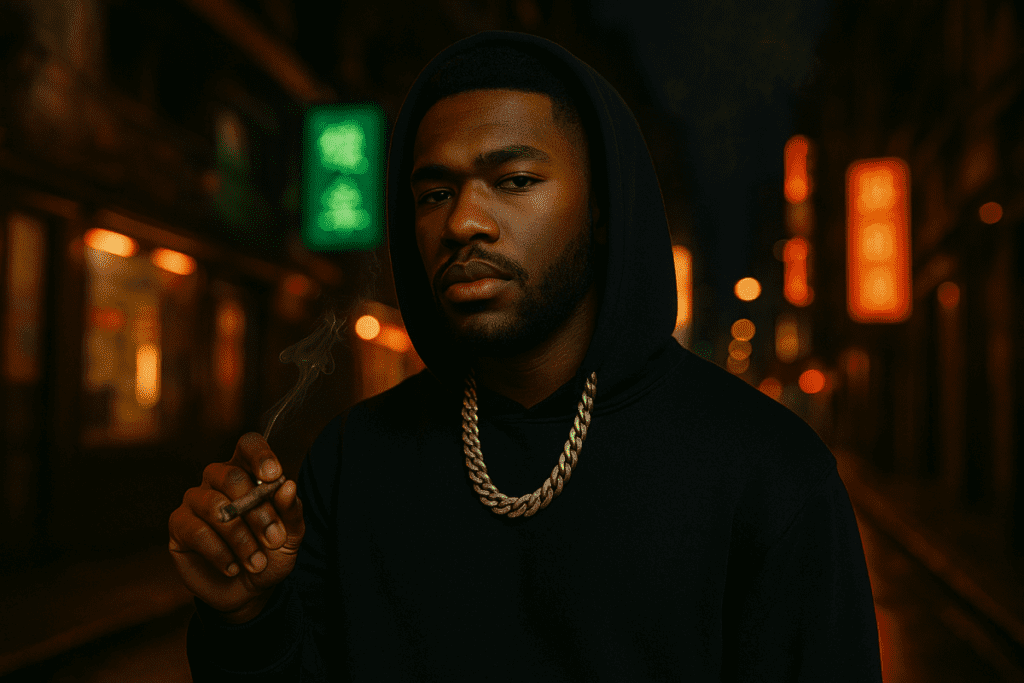
Cannabis in Hip-Hop: From Lyrics to Lifestyle

The hazy recording spaces where hip-hop icons created their most memorable songs reveal just a portion of the narrative. Rap music and cannabis culture have been connected from the genre’s beginnings, forming an alliance that revolutionized both sectors. What started as genuine urban stories has grown into a lifestyle phenomenon worth billions that shapes everything from clothing to cuisine, demonstrating that this bond reaches well past the studio walls.
The Roots Run Deep
Performers started candidly sharing their marijuana experiences through their songs. This represented more than simple defiance; it constituted a genuine narrative that mirrored the circumstances of city neighborhoods where hip-hop and marijuana culture both flourished. Musicians discovered that marijuana boosted their artistic inspiration. It assisted them in working through complicated feelings, and offered comfort from urban life pressures.
Dr. Dre’s 1992 “The Chronic” release did more than launch Snoop Dogg’s career. It made marijuana mentions acceptable in popular hip-hop. The record’s name directly indicated premium cannabis, while songs such as “Nuthin’ But a ‘G’ Thang” incorporated marijuana symbolism into the storytelling. This represented a pivotal moment when marijuana shifted from a forbidden topic to an essential cultural communication.
Pioneers of the Movement
Cypress Hill represents arguably hip-hop’s most significant cannabis-promoting collective. Their first 1991 release included songs such as “How I Could Just Kill a Man” and “Stoned Is the Way of the Walk,”. This positioned them as bold advocates of marijuana culture. B-Real’s unique nasal vocal style became linked with stoner rap, while their advocacy contributed to making marijuana policy discussions acceptable within hip-hop communities.
Snoop Dogg evolved from a new rapper into a cannabis cultural figure, creating a brand far beyond musical boundaries. His identity merged completely with marijuana culture, affecting the style, vocabulary, and lifestyle preferences of followers globally. Snoop’s method showed how performers could genuinely incorporate cannabis themes into their image while maintaining creative authenticity.
Modern Cannabis Entrepreneurs
Modern hip-hop musicians have transcended merely mentioning marijuana in their songs, they’ve transformed into savvy business leaders within the legal marijuana sector. Jay-Z’s cannabis industry investments via his venture capital company exemplify a wider pattern of hip-hop entrepreneurs viewing marijuana as a valid commercial venture. His partnership with Monogram, an upscale marijuana label, demonstrates how musicians can utilize their cultural impact to establish enduring enterprises.
The Khalifa Kush variety by Wiz Khalifa illustrates another progression in musician-marijuana collaborations. Through creating his unique marijuana genetics, Khalifa established a tangible link between his music identity and marijuana offerings, enabling supporters to genuinely participate in aspects of his way of life. This strategy has motivated numerous additional musicians to create their personal varieties and offerings.
The Lifestyle Revolution
Hip-hop’s cannabis culture has evolved beyond music into a complete lifestyle. Musicians frequently display cannabis-oriented apparel lines, smoking paraphernalia, and usage customs via social platforms, music videos, and concert appearances. This exposure has contributed to making cannabis consumption acceptable across varied demographics who may not have formerly identified with cannabis culture.
The emergence of cannabis-infused items has created fresh opportunities for audience interaction. Numerous fans now have an interest in crafting their personal cannabis experiences domestically, discovering how to make edibles: easy steps for cannabis-infused treats that replicate the items promoted by their preferred musicians. This do-it-yourself method enables supporters to engage directly in cannabis culture instead of staying inactive buyers.
Cultural Impact and Future Directions
As influential musicians publicly talk about cannabis advantages for artistic expression, pain relief, and stress reduction, they assist in dismantling years of harmful misconceptions and false information. This cultural transformation has bolstered wider legalization movements throughout America and globally.
The connection between cannabis and hip-hop keeps developing alongside expanding legalization. Musicians are adopting increasingly refined strategies, emphasizing premium products, social justice, and mindful usage communication. This growth mirrors hip-hop’s transformation from subculture to dominant cultural force.
Endnote
With both sectors expanding, their convergence guarantees ongoing advancement in offerings, experiences, and artistic manifestations, securing cannabis’s position as a genuine component of hip-hop culture for future generations.

